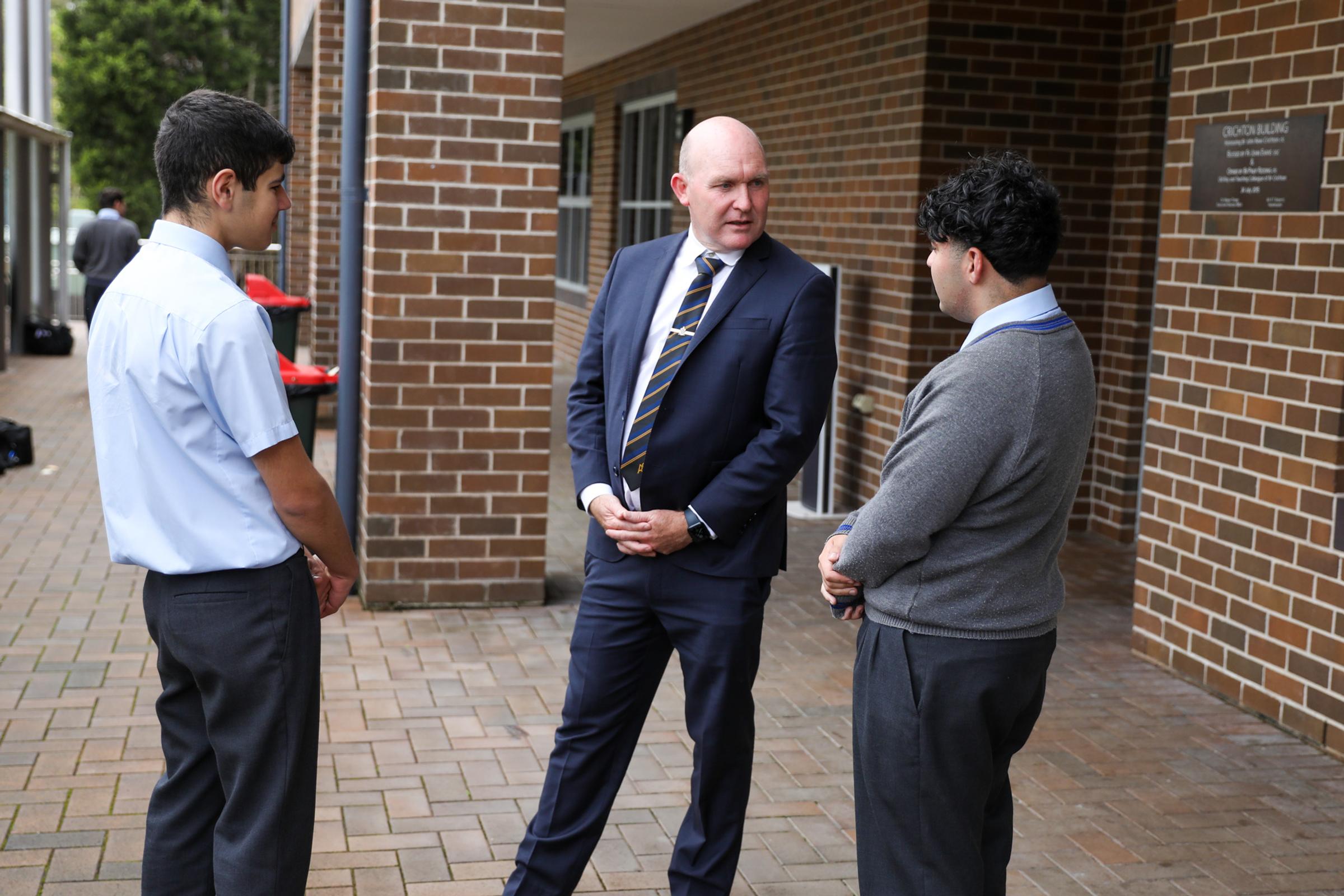Deputy Principal

Risk Takers
It is a normal part of growing up for adolescent males to take risks. They like to push boundaries and see how far they can push us. This can be scary, as their developing brain likes to seek instant reward and gratification rather than the possible long-term consequences. Devices are only making this worse as they try to see how many ‘likes’ or ‘streaks’ they can get.
A few weeks ago, my wife and I had four families around for dinner. There were 10 adults and 13 children. Adults were inside and our kids were all outside in the pool. My son is one of the oldest, he will turn 16 next week. One of our friends said that she thought she saw my son out of the corner of her eye, run across the pergola roof and forward flip over the pool fence and tiles and into the pool. She was not sure. I assured her that this was not possible. No one would be silly enough to do that. Five minutes later, all I could hear was the screaming outside as he did it again. This time he got caught. What went through his mind? What was he thinking?
The teenage brain has been studied for centuries and scientists are still trying to work out the answers to these questions. For my son, it was instant gratification from his friends who were cheering him on and telling him to do it again. For us as parents, the thought of losing your child or having him seriously injured flashes instantly to the front of our minds. My son is very coordinated, having grown up in boarding schools his whole life. From the age of one he was around older boys. So unfortunately, he has no fear. He is not alone. Young men can be fearless, invincible and they think nothing can stop them. That is the mentality of an adolescent male.
What do we do as parents/carers? This is not going away. How do we deal with it as their brains will not be fully wired the right way until their mid-twenties. I do not have the answer to that. I can only tell you that having open lines of communication with your sons is important. Not easy I know. However, the more they feel they can talk to you, the more that you can talk to them, hopefully something will sink in. I had to have an open and honest conversation with him about risk taking. I was upfront in telling him that I could not even fathom the thought of losing him. I told him that our family was the most precious thing in my life.
I cannot guarantee that he is not going to take risks again. Taking a risk is not necessarily a bad thing. I want him to take risks out on the sporting field. I want him to take risks with his learning and continue to push himself. I want him to take risks socially and put himself out there when he meets new people. However, I don’t want him to take risks that could see him hurt or see his friends hurt. I am hoping that by continually talking to him about taking risks, it will encourage him to think before he acts. He is about to get his driver’s licence. I don’t want him to be the one that speeds or gets into cars with his mates who have been drinking. I also do not want to wish these years away; I want to be able to enjoy these years with him as his formative brain develops. I want to enjoy our lives together and want him to realise that it is okay to be him, and that life is precious.
While I can never negate the risks he takes, I hope by talking to him that he will make better decisions. I always ask him and the boys that I teach to make 30 second decisions. To stop and think. This will hopefully get better outcomes for our boys and ensure that our conversations are ongoing long into the future.
Adrian Byrne
Deputy Principal
